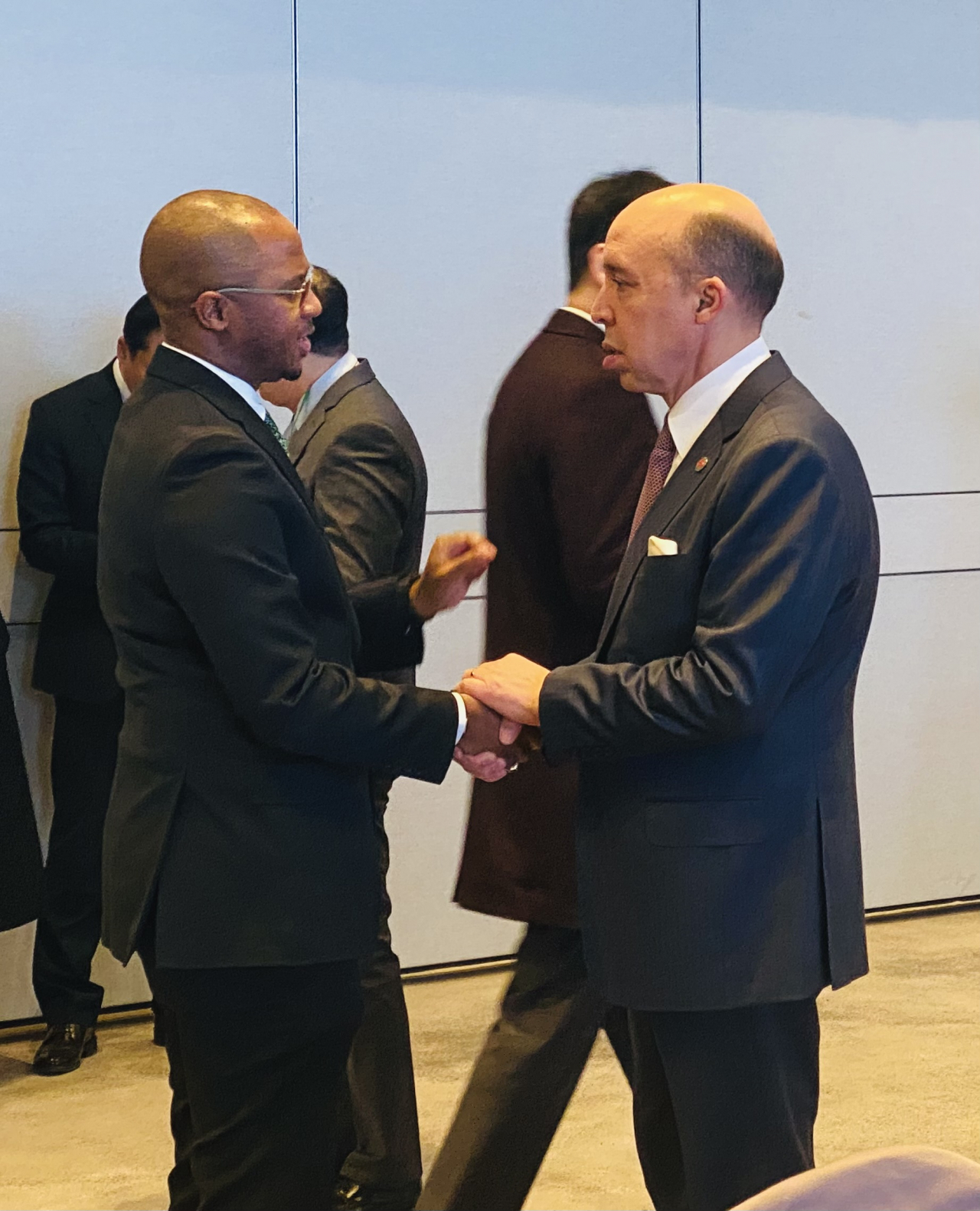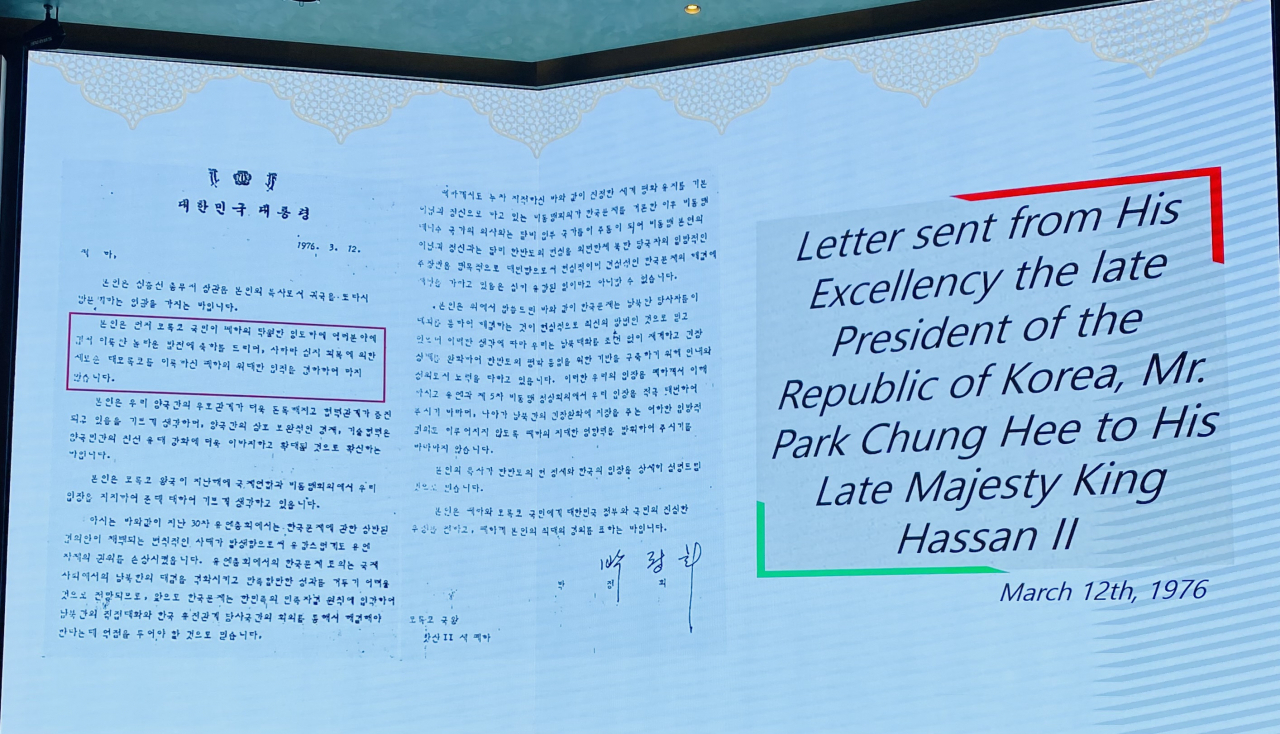 |
Moroccan Ambassador to Korea Chafik Rachadi(right) exchanges greetings with Tanzanian Ambassador to Korea Togolani Edriss Mavura ahead of the symposium on the theme, "Autonomy as a Relay For Development," organized by the Moroccan Embassy in Seoul at the Ambassador Hotel in Jung-gu, Seoul on Friday. (Sanjay Kumar/The Korea Herald) |
The Moroccan Embassy emphasized the significance of administrative autonomy as a catalyst for development, citing as an example the limited autonomy given to Jeju, at a symposium it hosted in Seoul on Friday. South Korea's southernmost island is a self-governing province, except for defense, diplomacy and judicial affairs.
Moroccan Ambassador to Korea Chafik Rachadi referred Jeju as a successful example of administrative autonomy playing a crucial role in regional development, at the symposium, held under the theme, "Autonomy as a Relay for Development: A Comparative Approach."
Morocco's autonomy plan for Western Sahara could be beneficial for development as well, according to Rachidi.
Western Sahara is a disputed territory, but Morocco asserts control over the region, referring to it as its "southern provinces," going back to before Spain established the region as a colony in 1884.
On the other hand, the Polisario Front, supported by Algeria, advocates for the self-determination of Western Sahara, opposing Morocco's claim to the territory.
The conflict has deep historical roots, dating back to the Madrid Accords of November 1975, which allocated two-thirds of Western Sahara to Morocco and one-third to Mauritania. Morocco submitted a plan to the United Nations in April 2007, responding to Security Council calls for a "definitive political solution" to the dispute.
 |
A letter sent by former President Park Chung-hee to Moroccan King Hassan II showcased at a symposium on autonomy as a relay for development at Ambassador Hotel in Jung-gu, Seoul on Friday. (Sanjay Kumar/The Korea Herald) |
On Oct. 30, 2023, a United Nations Security Council resolution stated that a political resolution to the longstanding dispute and increased cooperation among Maghreb Arab Union Member States could promote stability and security in the region, generating employment, growth and opportunities for people.
Rachadi recalled the historical context of the events of 1975 when King Hassan II of Morocco orchestrated the Green March that mobilized 350,000 unarmed Moroccans entered Western Sahara and asserted Morocco's sovereignty over it.
The Green March, a significant event in recent Moroccan history, marked a crucial step in achieving the territorial integrity of the Kingdom of Morocco. The demonstration led to the signing of the Madrid Accords on Nov. 14, 1975, officially ending almost a century of Spanish presence in the territory.
The Moroccan ambassador also showed a letter sent by South Korean former President Park Chung-hee on March 12, 1976, acknowledging Morocco's victory in reclaiming the Sahara territory.
The event was attended by members of the diplomatic corps, including Kwaak Young-hoon, president of the United Nations Association of Korea, and Ko Yun-ju, ambassador for international relations on Jeju Island, as well as Moroccan nationals in Korea, NGOs and the media.







